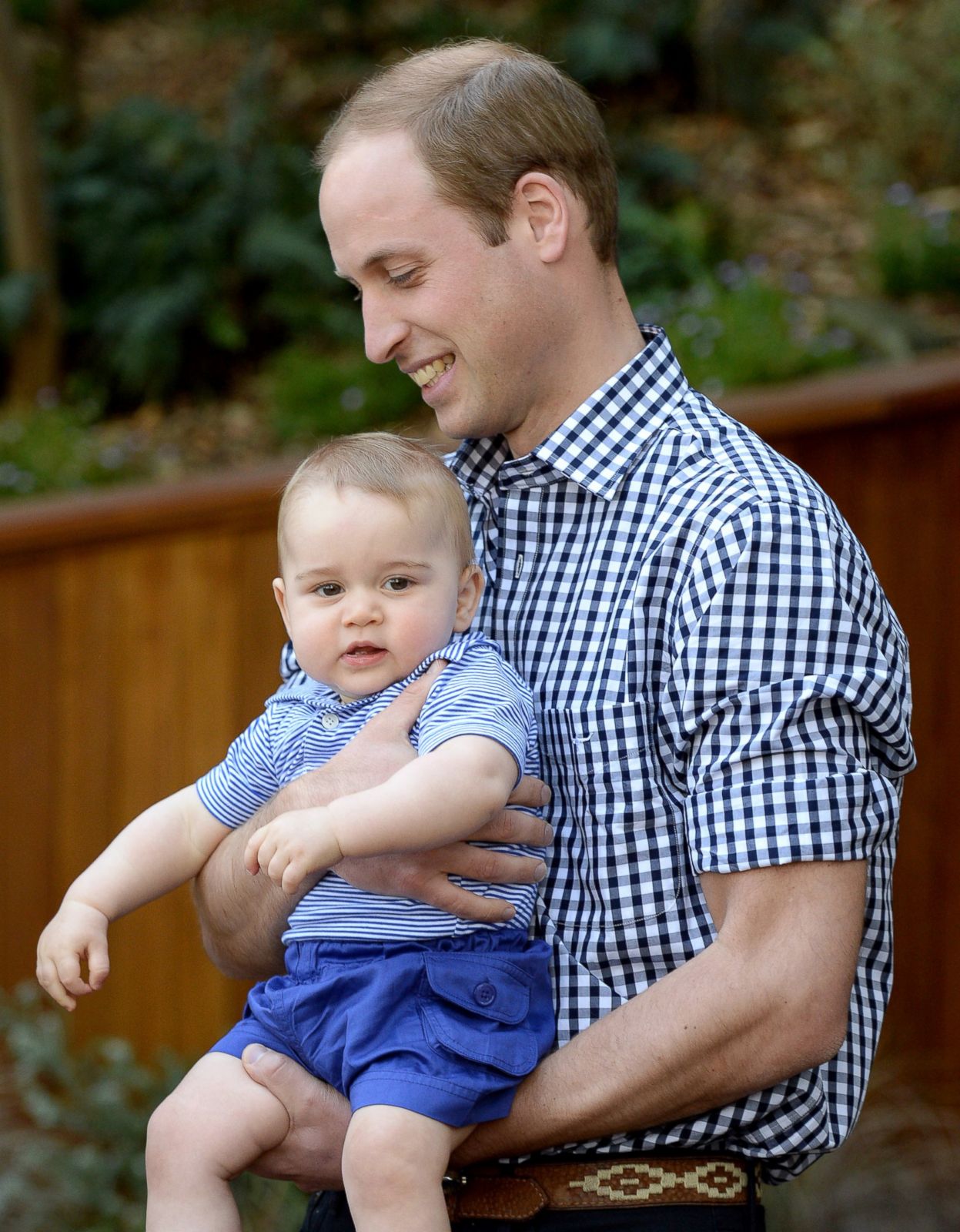Prince George's 11th Birthday: Morbid Rule Unveiled
Prince George's 11th birthday is just around the corner, and royal enthusiasts everywhere are buzzing with excitement. As the eldest child of Prince William and Kate Middleton, George is not just a prince but a symbol of the future monarchy. But amidst the celebrations, there's one peculiar term that has been making waves—the "morbid rule." What exactly is this rule, and how does it relate to the young prince's upcoming milestone? Let's dive in and unravel the mystery behind this intriguing topic.
The life of a royal child is nothing short of fascinating. From the moment Prince George was born, the world has been captivated by his every move. As he approaches his 11th birthday, the spotlight is once again on him. However, the "morbid rule" adds an interesting twist to the narrative, shedding light on the lesser-known aspects of royal succession and protocol.
For those unfamiliar with the term, the "morbid rule" is a concept that delves into the complexities of royal lineage and the potential scenarios that could arise in the event of unforeseen circumstances. It's a topic that sparks curiosity and raises questions about the future of the British monarchy. Let's explore this further and understand its significance in the context of Prince George's life.
- Rishia Haas Wikipedia The Ultimate Guide To Her Life Career And Achievements
- Meet The Woman Behind Gabriel Iglesias Discovering The Spouse Gabriel Iglesias Wife
Prince George: A Royal Legacy in the Making
Before we delve into the specifics of the "morbid rule," it's essential to take a closer look at Prince George himself. Born on July 22, 2013, George Alexander Louis is the first child of the Duke and Duchess of Cambridge. From a young age, he has been groomed for a life of duty and responsibility, following in the footsteps of his illustrious ancestors.
As the third in line to the British throne, Prince George's role in the monarchy is undeniable. His upbringing reflects the careful balance between tradition and modernity, ensuring that he is well-prepared for the responsibilities that lie ahead. But what does the "morbid rule" mean for him, and how might it impact his future?
Biography of Prince George
Let's take a moment to explore the life of Prince George in more detail. Below is a summary of his personal information, presented in a table format for easy reference.
- Unveiling The Truth About Jeanette Adair Bradshaw Age A Comprehensive Dive
- Where Does Lee Majors Live Now Unveiling The Life Of A Tv Icon
| Full Name | George Alexander Louis |
|---|---|
| Date of Birth | July 22, 2013 |
| Parents | Prince William and Catherine, Duchess of Cambridge |
| Siblings | Princess Charlotte, Prince Louis |
| Position in Line of Succession | Third in line to the British throne |
Understanding the Morbid Rule
The "morbid rule" is a term that has gained traction in recent years, particularly in discussions about royal succession. It refers to the hypothetical scenarios that could arise if a member of the royal family were to pass away unexpectedly. While it may sound grim, it is a crucial aspect of ensuring the smooth transition of power within the monarchy.
For Prince George, the "morbid rule" holds particular significance. As the third in line to the throne, his position could be affected by various factors, including the health and longevity of his predecessors. Understanding these possibilities is essential for maintaining the stability of the monarchy.
How Does the Morbid Rule Affect Prince George?
In the event of an untimely death in the royal family, the "morbid rule" outlines the protocols and procedures that would be followed. For Prince George, this could mean an acceleration in his preparation for the throne. The rule ensures that the monarchy remains resilient in the face of adversity, safeguarding its future for generations to come.
Bullet points to consider:
- Prince George's position in the line of succession could change depending on various factors.
- The "morbid rule" emphasizes the importance of contingency planning within the monarchy.
- It highlights the need for royal heirs to be prepared for unexpected circumstances.
The Importance of Royal Succession
Royal succession is a cornerstone of the British monarchy, ensuring continuity and stability. The "morbid rule" plays a vital role in this process, addressing potential challenges that could arise. By considering all possible scenarios, the monarchy can ensure a seamless transition of power, even in the most trying of times.
Prince George's 11th birthday marks a significant milestone in his journey as a future monarch. As he grows older, his responsibilities will increase, and the "morbid rule" will continue to be a relevant consideration in his development.
Historical Context of the Morbid Rule
To truly understand the "morbid rule," it's important to look at its historical context. Throughout history, the British monarchy has faced numerous challenges, from political upheavals to personal tragedies. The "morbid rule" has evolved over time, adapting to the changing needs of the monarchy and the nation.
Some key historical events to note:
- The abdication of King Edward VIII in 1936.
- The untimely death of King George VI in 1952, leading to Queen Elizabeth II's ascension to the throne.
- Modern updates to the laws of succession, such as the Succession to the Crown Act 2013.
Prince George's Education and Preparation
As part of his preparation for the throne, Prince George's education is carefully planned and executed. He attends Thomas's Battersea, a prestigious private school in London, where he receives a well-rounded education. The curriculum is designed to equip him with the skills and knowledge necessary to lead the monarchy in the future.
His education goes beyond academics, focusing on character development, leadership, and a deep understanding of the responsibilities that come with being a royal. The "morbid rule" serves as a reminder of the importance of this preparation, ensuring that Prince George is ready for any eventuality.
Prince George's Public Appearances
Prince George has made several public appearances over the years, charming crowds with his charismatic demeanor. These appearances are carefully orchestrated, providing him with valuable experience in engaging with the public and representing the monarchy. As he grows older, his role in public life will expand, further preparing him for his future responsibilities.
Some notable public appearances include:
- Attending Trooping the Colour with his family.
- Meeting world leaders and dignitaries during royal engagements.
- Participating in charitable events and initiatives.
The Future of the British Monarchy
As Prince George celebrates his 11th birthday, the future of the British monarchy looks bright. The "morbid rule" serves as a safeguard, ensuring that the monarchy remains strong and resilient. By addressing potential challenges head-on, the monarchy can continue to thrive in an ever-changing world.
Prince George's role in this future is undeniable. As the third in line to the throne, he represents a new generation of leaders who will carry the torch of tradition while embracing modernity. The "morbid rule" is just one aspect of the complex web of responsibilities that he will inherit, but it underscores the importance of preparation and foresight.
Public Perception of the Morbid Rule
Public opinion on the "morbid rule" varies widely. While some view it as a necessary precaution, others find it unsettling. However, it is crucial to remember that the rule exists to protect the monarchy and ensure its continued relevance in modern society.
As Prince George grows older, public perception of the monarchy will undoubtedly evolve. The "morbid rule" will continue to be a topic of discussion, sparking debates and raising questions about the future of the institution.
Conclusion: Celebrating Prince George's 11th Birthday
As we celebrate Prince George's 11th birthday, it's important to reflect on the significance of the "morbid rule" in his life. While the term may sound daunting, it serves as a reminder of the careful planning and preparation that goes into maintaining the stability of the British monarchy.
Key takeaways:
- The "morbid rule" is an essential aspect of royal succession, ensuring continuity in the monarchy.
- Prince George's education and public appearances are vital components of his preparation for the throne.
- The future of the British monarchy looks promising, with Prince George at the forefront of its continued evolution.
We invite you to share your thoughts and insights in the comments section below. Your feedback is invaluable, and we encourage you to explore other articles on our site for more fascinating insights into the world of royalty.
Table of Contents
- Prince George's 11th Birthday: Morbid Rule Unveiled
- Prince George: A Royal Legacy in the Making
- Biography of Prince George
- Understanding the Morbid Rule
- How Does the Morbid Rule Affect Prince George?
- The Importance of Royal Succession
- Historical Context of the Morbid Rule
- Prince George's Education and Preparation
- Prince George's Public Appearances
- The Future of the British Monarchy
- Public Perception of the Morbid Rule
- Conclusion: Celebrating Prince George's 11th Birthday
Article Recommendations
- Knight Melendez The Rising Star Redefining Entertainment
- Niall Horans Matter Relationships Love Life And Lessons



Detail Author:
- Name : Carmelo Borer
- Username : kariane02
- Email : goyette.brigitte@stokes.com
- Birthdate : 1998-11-06
- Address : 587 Koss Station Lake Malinda, CA 82715
- Phone : 364-643-4225
- Company : Cremin-Kuhn
- Job : Computer Programmer
- Bio : Quo aperiam nulla et ipsa et perferendis odit. Velit nesciunt facere suscipit alias. Vitae porro aliquam omnis ut libero.
Socials
facebook:
- url : https://facebook.com/jean.hyatt
- username : jean.hyatt
- bio : Enim dolores esse enim odit commodi odit. Fugiat aut illum rem voluptates.
- followers : 3251
- following : 122
instagram:
- url : https://instagram.com/jean_real
- username : jean_real
- bio : Eius cum veritatis deserunt. Et est cum numquam.
- followers : 1749
- following : 822
twitter:
- url : https://twitter.com/jean_official
- username : jean_official
- bio : Ut qui illum repellendus quam. Neque voluptas possimus molestias itaque dolores odio qui assumenda.
- followers : 569
- following : 2524
tiktok:
- url : https://tiktok.com/@hyattj
- username : hyattj
- bio : Accusamus blanditiis temporibus assumenda delectus a quia mollitia.
- followers : 2466
- following : 990
linkedin:
- url : https://linkedin.com/in/jhyatt
- username : jhyatt
- bio : Sunt quas quia nobis quaerat.
- followers : 1996
- following : 861